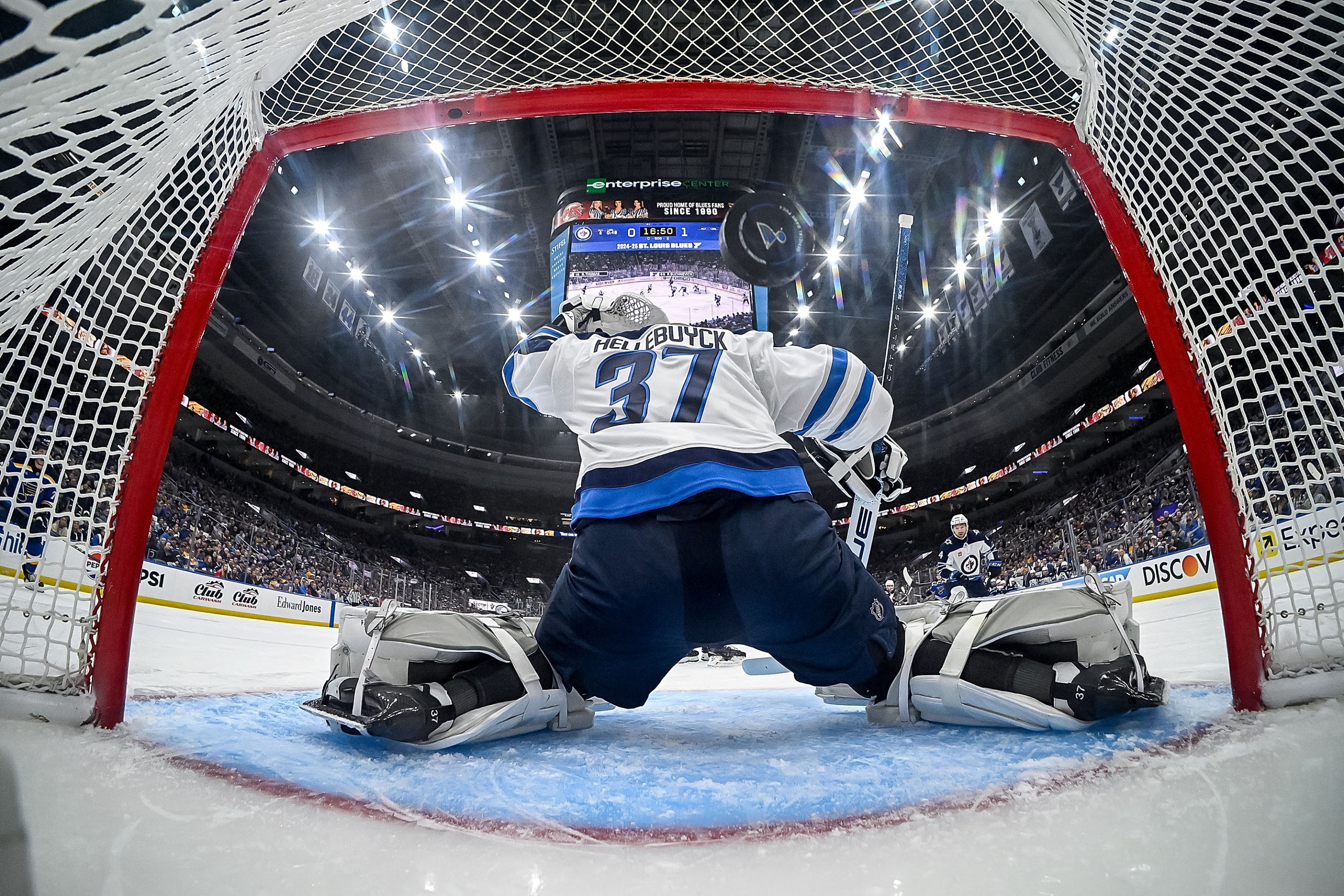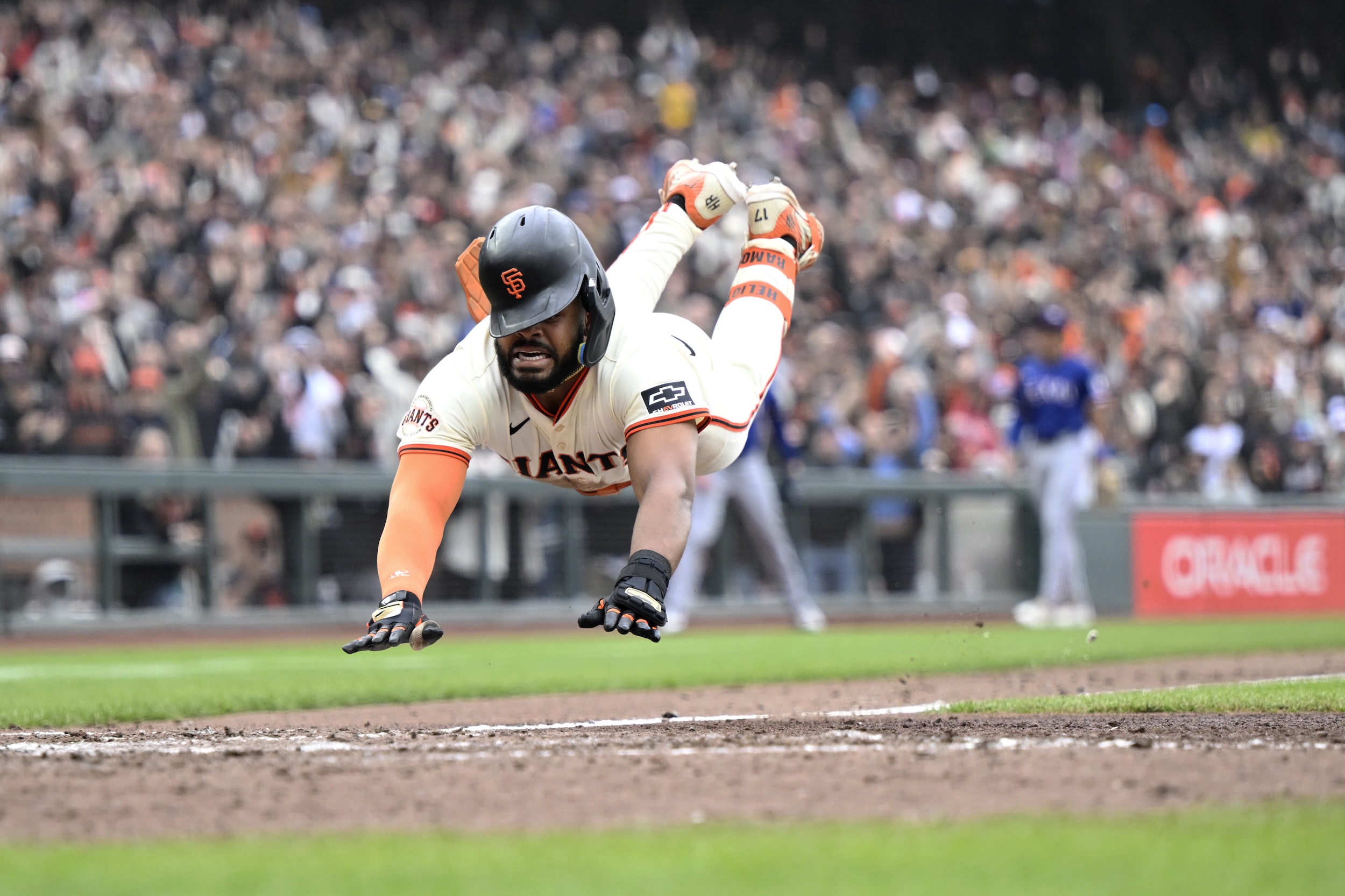FLUSHING, N.Y. — After an outlandish upset of No. 3 seed Carlos Alcaraz at the U.S. Open, the soft-spoken Botic van de Zandschulp was asked what emotions he was feeling. "Actually right now not so many," he told the assembled press, chuckling. And I believed him. While the 28-year-old Dutchman plays some smooth and intuitive tennis, his hazy, tranquilized affect would be more common among SoundCloud rappers than among people in his profession.
A 6-1, 7-5, 6-4 victory over tennis's happiest boy was basically a test of ascetic willpower: Is it possible to feel nothing after defeating the player who just strung together Roland Garros, Wimbledon, and an Olympic silver medal? Does one not shout after handing the boy-king his first genuinely bad loss at the majors? Buddha would envy the blissful non-attachment modeled by the world No. 74 throughout the evening. Van de Zandschulp, who was pondering retirement as recently as this summer, took every point, game, and set with cool equanimity. When he gave up a break, he simply went and got it back. He celebrated the career-best victory with a light fist pump, a few firm blinks, and shakes of the head which could altogether be confused for mild indigestion. He described his play as "unbelievably stable" throughout the match. The same descriptor could apply to his overall being. I am in awe of this man and his apparent lack of awe at his achievement.
On the other side of the emotional spectrum, a jacked-up Alcaraz took the court in his black tank top as Troye Sivan blared throughout the stadium. Immediately, his lack of rhythm was obvious. He hit no winners while losing the first set in half an hour. I didn't make much of it. He's played rough sets before, and plenty of them throughout the majors that he won this year, as best-of-five typically gives him enough time to tidy up and find a decent level in the crucial moments. And a decent level from Carlitos is destructive to all but a handful of opponents—too powerful, too quick, too creative. In fact, that has been the defining feature of Alcaraz's summer: a newfound ability to claim the sport's biggest prizes, despite drifting quite far from his A-game for long stretches of play. In a roundabout way, it's been the most convincing thing about his season, as far as his long-term prospects are concerned. He played at a more consistent level for much of 2023, but in 2024 he proved that he has such a high skill ceiling, and such a reliable sense of when to dial up his focus, that he can get away with these temporary lapses.
But there was no sense of best-of-five inevitability today, no timely recovery for the high-pressure points. There was not even enough of a basic technical foundation for that hypothetical comeback to build on. Alcaraz couldn't consistently land three solid forehands in a row. He struggled to return both first and second serves, and failed to defend well out of the corners. The shot selection, which can be quixotic even at the best of times, can look somewhat delirious when he's down two sets and trying to volley a defensive lob that was about to land in the back third of the court. Taken as a whole, the image was difficult to reconcile with past experiences of the 21-year-old's charmed career. I never thought I'd see Alcaraz, down two sets on Arthur Ashe Stadium against a player ranked outside the top 50, with the crowd utterly checked out and conversing amongst themselves. The crowd is typically his renewable energy source. Smiling, which Alcaraz has described as "key of everything," was only attempted late in the third set, in the game where he broke back to level the set at 3-3. Later he tried to point to his ear and rile up the crowd, but he couldn't find the tennis good enough to substantiate his late-night showmanship.
Partly he suffered because van de Zandschulp played some excellent ball and arrived with a thorough understanding of his opponent. Alcaraz praised his opponent and said he'd expected to get more free points off errors; once he realized that he wasn't going to get those, he couldn't find a way to step up his game. Van de Zandschulp maintained beautiful consistency from the baseline and sprinkled in occasional moments of transcendence.
"Normally when he is striking the ball, you feel like the ball is coming with such impact. So you get stressed a little bit like I want to hit harder, or it's tough to control the ball," he said when I asked him what was different about his match today versus his losses to Alcaraz in the past. "That's what I felt like when I played him in Basel and Australian Open. Today I felt I had much better composure during the hitting." He also said his gameplan was to get to the net before the net-happy Alcaraz, beating him to the punch, and he executed on that. I can't remember the last time I saw an opponent outclass Alcaraz so thoroughly in the frontcourt, outfoxing him some of the improvisational points that the No. 3 seed loves so dearly.
When he's playing with conviction, van de Zandschulp can mix it up with anyone on tour. I first came across him during his breakout appearance at this tournament in 2021, when he played his way from qualifying rounds to the quarterfinals; he was the only player to take a set off Daniil Medvedev during his title run that year. He later reached No. 22 in the world and seemed to have talent enough to hang out in the top 30. Over the last year he's had an injury and a woeful run of form. After Roland-Garros he considered quitting, and he has dipped back down to the Challenger circuit. A few short weeks later, without warning, he ousted one of the three U.S. Open favorites in straight sets.
Speaking to press right after the match, Alcaraz sounded frustrated with himself and puzzled as to what he should take away from this loss, which was about as uncanny as his recent loss to Gael Monfils in Cincinnati, a match notable because it featured baby's first racquet smash. He acknowledged that he came in Thursday's match with lower energy due to a packed summer schedule with the Olympics, but he didn't want to attribute the loss to that. He also didn't want to attribute it to the disappointment of his gold medal match against Novak Djokovic. He said it was one of those matches where he didn't know what to do or how to adjust, and to an outside observer, his play mirrored that internal reality. "It was a fight against myself, in my mind during the match. In tennis you are playing against someone that wants the same as you, to win the match, and you have to be as much calm as you can just to think better in the match and try to do good things," Alcaraz said. "It was a roller coaster, let's say, in my mind." While it is still hard to discern what exactly was in the placid mind of Botic van de Zandschulp during this tournament-altering upset, rest assured that it was not a roller coaster.






